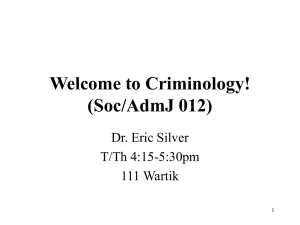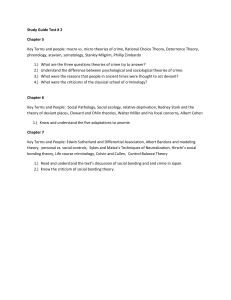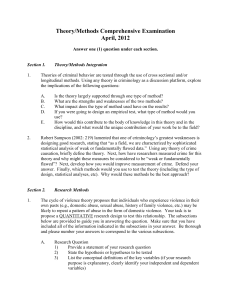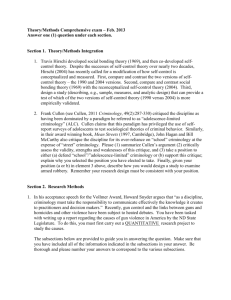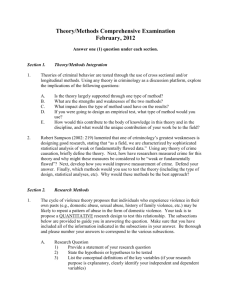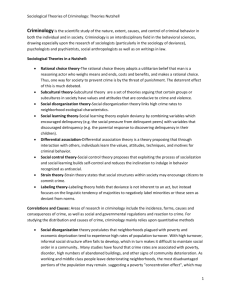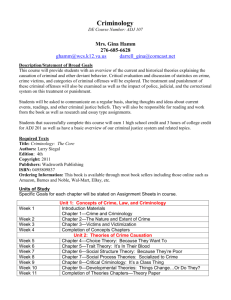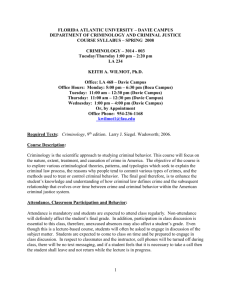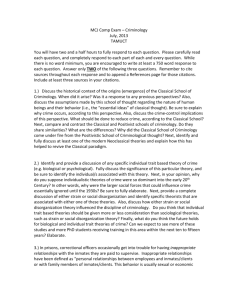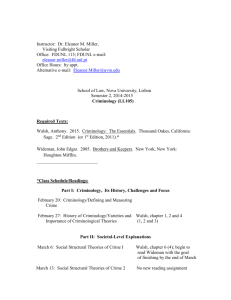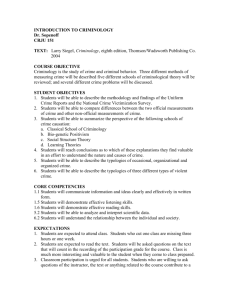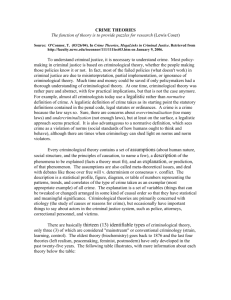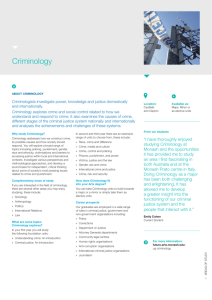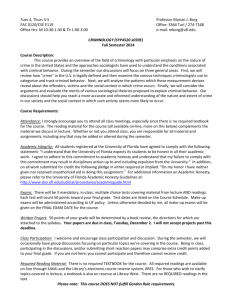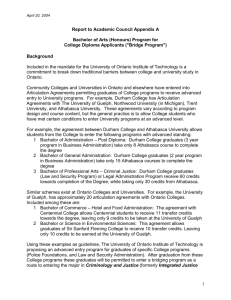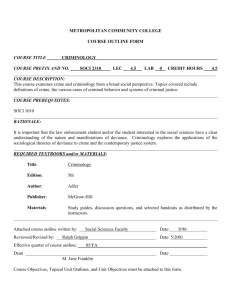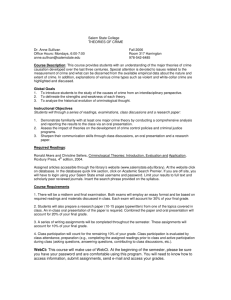CRJ 208
advertisement
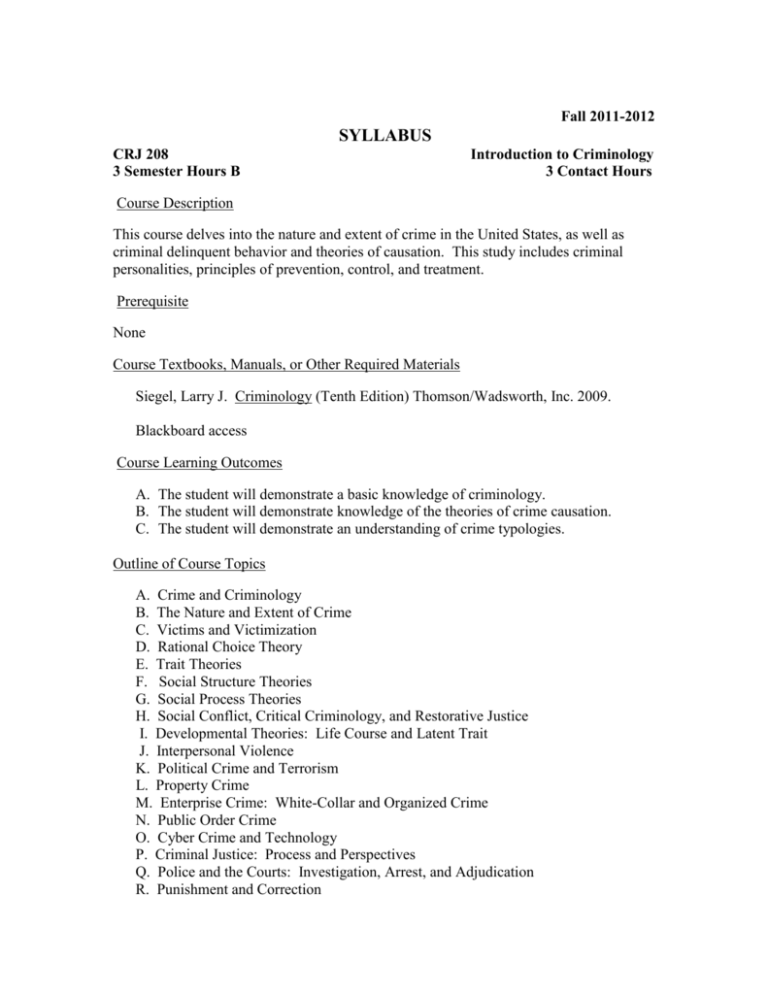
Fall 2011-2012 SYLLABUS CRJ 208 3 Semester Hours B Introduction to Criminology 3 Contact Hours Course Description This course delves into the nature and extent of crime in the United States, as well as criminal delinquent behavior and theories of causation. This study includes criminal personalities, principles of prevention, control, and treatment. Prerequisite None Course Textbooks, Manuals, or Other Required Materials Siegel, Larry J. Criminology (Tenth Edition) Thomson/Wadsworth, Inc. 2009. Blackboard access Course Learning Outcomes A. The student will demonstrate a basic knowledge of criminology. B. The student will demonstrate knowledge of the theories of crime causation. C. The student will demonstrate an understanding of crime typologies. Outline of Course Topics A. Crime and Criminology B. The Nature and Extent of Crime C. Victims and Victimization D. Rational Choice Theory E. Trait Theories F. Social Structure Theories G. Social Process Theories H. Social Conflict, Critical Criminology, and Restorative Justice I. Developmental Theories: Life Course and Latent Trait J. Interpersonal Violence K. Political Crime and Terrorism L. Property Crime M. Enterprise Crime: White-Collar and Organized Crime N. Public Order Crime O. Cyber Crime and Technology P. Criminal Justice: Process and Perspectives Q. Police and the Courts: Investigation, Arrest, and Adjudication R. Punishment and Correction Methods of Instruction A. B. C. D. E. F. G. Instructor lectures Textbook Blackboard and other Internet resources Class discussion Student research/projects Field trips, if appropriate and time and budget permitting Guest lecturers when appropriate and time and budget permitting Evaluation and Assessment A. Course grade assessment 1. Written and oral quizzes 2. Written exams 3. Homework 4. Class participation 5. Projects B. Departmental Assessment of Learning Outcomes 1. On designated exams, the student will demonstrate the basic knowledge of Criminology. 2. On designated exams, the student will demonstrate knowledge of the theories of crime causation. 3. On a designated assignment, the student will demonstrate an understanding of crime typologies. C. Use of Assessment Findings During the Fall In-service of the year following the scheduled review of CRJ 208, a committee will review all course assessment materials submitted by the instructors and division chair. The committee will submit a report of any recommended curriculum changes for CRJ 208 to the division chair and send the report to the Student Learning Outcomes Technical Committee. Upon approval by the SLOT Committee, a copy will be filed with the Office of Planning and Assessment. Attendance Students are expected to attend all classes for which they are registered. Students who are unable to attend class regularly, regardless of the reason or circumstance, should withdraw from that class before poor attendance interferes with the student’s ability to achieve the objectives required in the course. Withdrawal from class can affect eligibility for federal financial aid. Statement on Discrimination/Harassment NACC and the Alabama State Board of Education are committed to providing both employment and educational environments free of harassment or discrimination related to an individual’s race, color, gender, religion, national origin, age, or disability. Such harassment is a violation of State Board of Education policy. Any practice or behavior that constitutes harassment or discrimination will not be tolerated. Statement of Adherence to ADA Guidelines Instructors will adhere to the Americans With Disabilities Act and/or Section 504 of the Rehabilitation Act (1973) and will publish the following statement on course outlines given to students at the beginning of each semester: “Any individual who qualifies for reasonable accommodations under the American With Disabilities Act or Section 504 of the Rehabilitation Act (1973) should notify the instructor immediately.”
